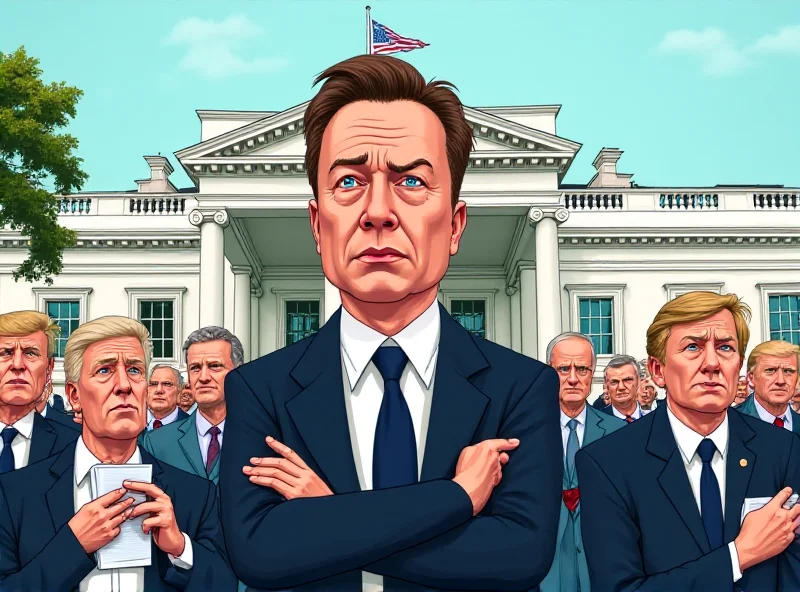The Trump administration is making headlines with a mix of controversial policies and internal challenges. From Elon Musk's involvement in government efficiency to new immigration measures and shifts in global strategy, the landscape is rapidly evolving.
Musk's Impact on Government Efficiency
Elon Musk's role within the Trump administration, despite not being a formal cabinet member, continues to raise eyebrows. He is slated to participate in cabinet meetings, even as his "Department of Government Efficiency" (dubbed "Doge") faces internal turmoil. More than 20 staffers recently resigned, protesting Musk's demands to justify their positions and cut costs, which they felt jeopardized critical public services.

These mass resignations are a significant blow to Musk's efforts and have sparked backlash from within the cabinet. The situation highlights the tension between the administration's goals and the potential impact on government employees and services. One resigning staffer stated, "We refused to use our expertise to dismantle critical public services," underscoring the ethical concerns driving the departures.
New Immigration Policies: A "Golden Card" for Millionaires
The Trump administration is also implementing significant changes to immigration policy. One notable initiative is the creation of a "golden card," a residence permit aimed at attracting wealthy individuals to the United States. This card, expected to cost $5 million, will offer millionaires the same privileges as permanent residents with green cards.
This "golden card" is intended to replace the EB-5 visa program, which currently allows foreign investors to obtain a green card. The move signals a shift towards prioritizing high-net-worth individuals in the immigration process. 
Furthermore, the White House is reportedly planning to introduce an immigrant registry, imposing fines or even jail time for those who fail to register. This measure, as reported by The Wall Street Journal, represents a further escalation in the administration's approach to migration control.
Global Implications and Australia's Response
The Trump administration's policies are not only impacting domestic affairs but also reshaping the global landscape. The shift away from globalism and free trade towards "transactional mercantilism" is causing concern among allies and partners.

Countries like Australia, which have traditionally relied on a rules-based international order, are now reassessing their strategic positions. With the US seemingly retreating from globalism, Australia faces a growing fear of abandonment and must engage more fully with its surrounding region. As John Blaxland notes, "Australia heavily invested in its US relationship we need to calmly undertake a net assessment: to weigh up what’s at stake while looking to engage with our region more fully."
The combination of internal challenges, immigration policy changes, and shifts in global strategy paints a complex picture of the Trump administration's impact both at home and abroad.
